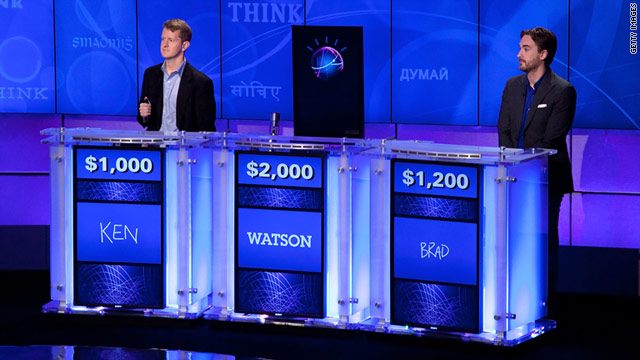Computers and the internet are changing the nature of our memory, research in the journal Science suggests.
Psychology experiments showed that people presented with difficult questions began to think of computers.
When participants knew that facts would be available on a computer later, they had poor recall of answers but enhanced recall of where they were stored.
The researchers say the internet acts as a "transactive memory" that we depend upon to remember for us.
Lead author Betsy Sparrow of Columbia University said that transactive memory "is an idea that there are external memory sources - really storage places that exist in other people".
"There are people who are experts in certain things and we allow them to be, [to] make them responsible for certain kinds of information," she explained to BBC News.
Co-author of the paper Daniel Wegner, now at Harvard University, first proposed the transactive memory concept in a book chapter titledCognitive Interdependence in Close Relationships, finding that long-term couples relied on each other to act as one another's memory banks.
"I really think the internet has become a form of this transactive memory, and I wanted to test it," said Dr Sparrow.
Where, not whatThe first part of the team's research was to test whether subjects were "primed" to think about computers and the internet when presented with difficult questions. To do that, the team used what is known as a modified Stroop test.
The standard Stroop test measures how long it takes a participant to read a colour word when the word itself is a different colour - for example, the word "green" written in blue.
Reaction times increase when, instead of colour words, participants are asked to read words about topics they may already be thinking about.
In this way the team showed that, after presenting subjects with tough true/false questions, reaction times to internet-related terms were markedly longer, suggesting that when participants did not know the answer, they were already considering the idea of obtaining it using a computer.
A more telling experiment provided a stream of facts to participants, with half told to file them away in a number of "folders" on a computer, and half told that the facts would be erased.
When asked to remember the facts, those who knew the information would not be available later performed significantly better than those who filed the information away.
But those who expected the information would be available were remarkably good at remembering in which folder they had stored the information.
"This suggests that for the things we can find online, we tend keep it online as far as memory is concerned - we keep it externally stored," Dr Sparrow said.
She explained that the propensity of participants to remember the location of the information, rather than the information itself, is a sign that people are not becoming less able to remember things, but simply organising vast amounts of available information in a more accessible way.
"I don't think Google is making us stupid - we're just changing the way that we're remembering things... If you can find stuff online even while you're walking down the street these days, then the skill to have, the thing to remember, is where to go to find the information. It's just like it would be with people - the skill to have is to remember who to go see about [particular topics]."


